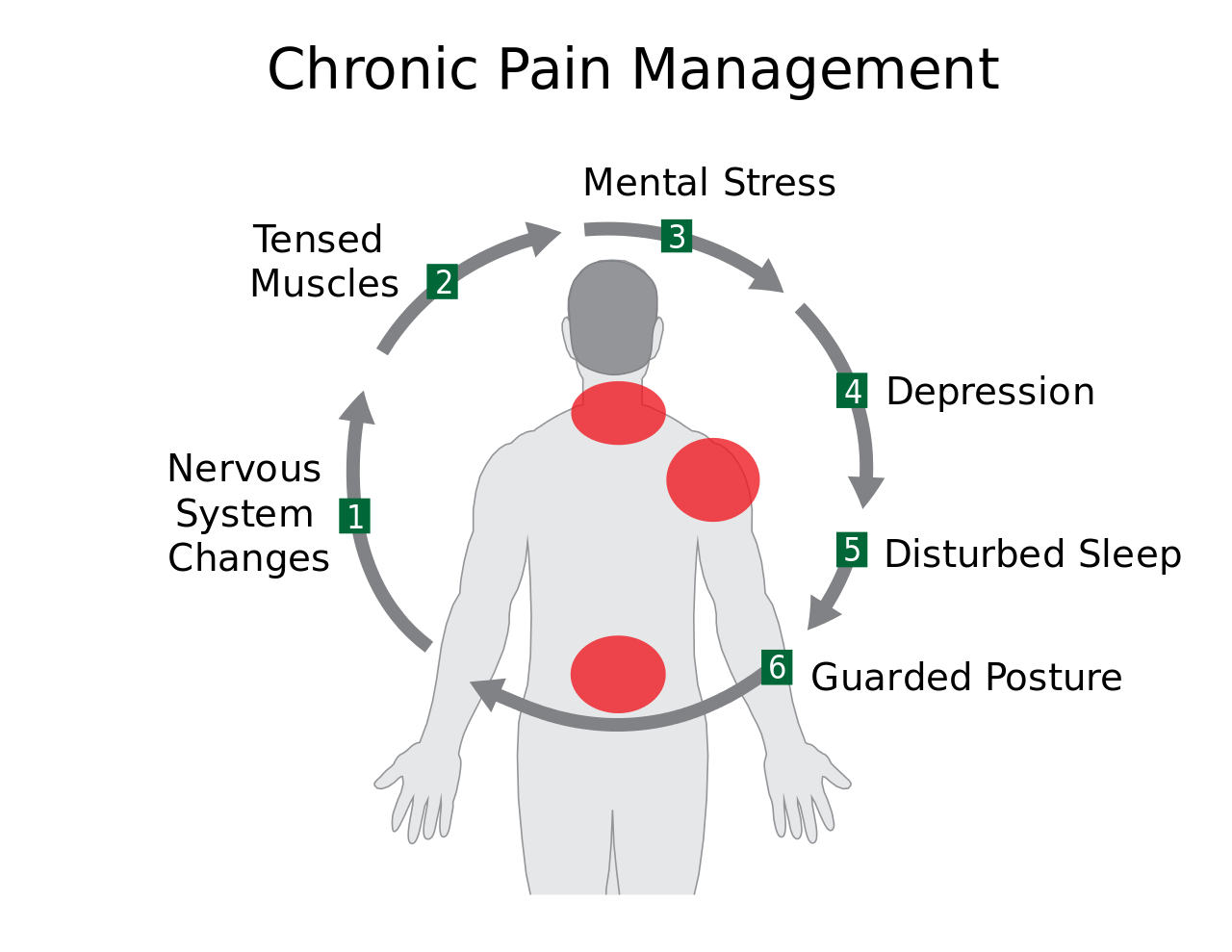Chronic Pain Management
Dr. Born has over 32 years experience with pain patients. He provides evaluation and treatment services to pain patients and frequently works in conjunction with local medical pain specialists. He provides pre-surgical evaluations as requested for spinal cord stimulator or intrathecal pump implantation. He provides a variety of treatment approaches to pain patients, including psychotherapy, biofeedback, relaxation training, cognitive therapy, and training in a variety of other behavioral chronic pain management skills.
Chronic Pain
The prevalence of physical pain in the general population is staggering, with estimates of 30 – 40% of Americans experiencing pain on a daily basis. Pain is perhaps the most frequent reason for making physician visits and is a common reason for missed workdays and lost productivity. Although estimates vary, it is safe to say that pain-related disability produces costs of more than $150 billion annually.
The term ‘Chronic Pain’ refers to pain that continues beyond the time considered normal for healing and recovery from an injury or illness. In general, pain that continues for longer than about three months following an injury would be considered chronic pain. Pain that is experienced directly after the injury and during the healing period is commonly referred to as ‘acute’ pain. In general, chronic pain is more challenging to treat effectively than acute pain and can produce many secondary problems including loss of productivity, inability to engage in normal lifestyle activities, development of depression., increased stress, and loss of physical conditioning. There is also growing evidence that the presence of chronic pain may lead to physical changes in the body’s functioning, including neurochemical, neuromuscular, and hormonal functions.
The person experiencing chronic pain will often require further medical assistance from health care providers. Generally, the most effective approach in managing chronic pain is a ‘multi-disciplinary’ approach. Simply put, this means that the most effective help may come from a ‘team’ of health care providers from different disciplines. Some of the most common healthcare disciplines that are helpful to people with chronic pain include family physicians, medical pain specialists, chiropractors, neuromuscular massage therapists, physical therapists, and psychologists.
The Chronic Pain Cycle
Sometimes you will hear the term ‘Chronic Pain Cycle’ used in referring to the challenges involve with chronic pain management. This refers to the self-perpetuating nature of chronic pain. There are probably multiple ‘chronic pain cycles’ that are involved. For instance: As a result of pain the muscles in the area around the site of the injury become tense, or ‘brace.’ Then, if these muscles remain tense for a period of days, weeks, or months they begin to produce additional pain as a result of the tension. This additional pain can then lead to yet more muscle tension, perhaps in the accompanying muscles, which, in turn, produces yet more pain.
Here is another example of a chronic pain cycle: A person is injured and as a result develops chronic pain as well as significant activity interference. As a result of the pain and physical limitations the person is not able to perform normal work or personal activities. As a result of these changes a person can begin developing a clinical depression. The clinical depression causes additional problems such as sleep disturbance, inability to concentrate, and inability to relax (among others). The development of a clinical depression causes changes in the nervous system that not only can increase sensitivity to pain but also makes coping with pain and stress much more difficult. The person has increased pain and they are less able to cope with it. Then the cycle continues.
There are numerous other examples of chronic pain cycles, and they can be different for each individual. Learning to manage the Chronic Pain Cycle is key to developing better control over not only the pain, but your life.
Psychologists and Chronic Pain
Psychologists can provide help in several ways to patients suffering from chronic pain. It is not uncommon for medical pain specialists to require patients to undergo psychological consultation or evaluation to help determine the best treatment approaches for the patient, or to help determine the patient’s readiness for certain surgical procedures. Pain psychologists can also provide treatment assistance by helping treat the depression and anxiety that frequently develop with chronic pain. Specially trained psychologists can also counsel with and train the patient in a variety of behavioral chronic pain management skills. Examples of topics and skills that the psychologist may focus on with the patient include relaxation training, control of negative thinking, and stress management. Managing chronic pain is challenging, and the patient with pain needs emotional support. Learning about your condition, and developing coping skills are very important. There are many web-based support resources. Below are listed a few good resources for information on pain and coping.
The American Chronic Pain Association
The ACPA, PO ox 850, Rocklin, CA 95677
Phone: 1-800-533-3231 – Fax: (916) 632-3208
International Association for the Study of Pain (IASP)
http://iasp-pain.org/education/content
Practical Pain Management
http://practicalpainmanagement.com/
U.S. Pain Foundation
To Improve the Quality of Life
Flexible appointments
Or call — 706-543-7605

